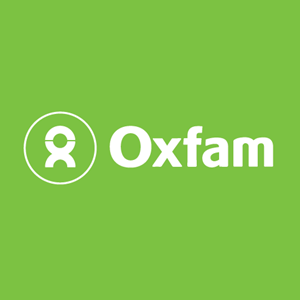
| Posted date | 18th August, 2025 | Last date to apply | 30th August, 2025 |
| Country | Pakistan | Locations | Islamabad |
| Category | Proposal/Quotations | ||
| Type | Consultancy | Position | 1 |
1. Background
Oxfam has been active in Pakistan since 1973, working to empower all people, particularly women and girls, to exercise their rights and access essential services and economic
opportunities . Oxfam’s mission is to create lasting solutions to poverty, inequality, and vulnerability through rights-based sustainable
development, humanitarian assistance, and public education. It collaborates with civil society organizations, women’s rights groups, research institutions, the private sector, and government authorities at national, provincial, and local levels. Oxfam’s Country Strategy (2015–2023, with ongoing activities) aimed to foster a just society where all individuals live with dignity, enjoy their rights, and participate as active citizens. The
organization has played a pivotal role in advancing climate change resilience, humanitarian preparedness, and women’s protection. Recent Context: By June 2024, Oxfam closed all programmes under the Gender Justice and Governance pillars, as documented in the previous evaluation report. Consequently, this evaluation focuses exclusively on activities under the “Saving Lives Now and in the Future” programme, aligning with Oxfam’s strategic shift and ongoing exit from Pakistan.
2. Programme Focus
The evaluation will assess activities under the “Saving Lives Now and in the Future”
programme, including:
• Emergency response and disaster management
• Community-based preparedness, disaster risk reduction, and resilience building
These activities were implemented in collaboration with government entities (e.g., National
Disaster Management Authority, Provincial Disaster Management Authorities), local NGOs,
and provincial disaster management bodies, emphasizing partnership, accountability, and
community-level impact. Key implementation areas include Sindh and Balochistan.
3. Recent Developments
Oxfam is phasing out its operations in Pakistan, making this evaluation critical to:
• Evaluate the results and impact of the “Saving Lives Now and in the Future”
programme
• Inform ongoing humanitarian efforts and capture lessons learned
• Support the country office in executing its exit strategy in compliance with national
laws, INGO regulations, and accountability standards
The evaluation will provide evidence of Oxfam’s contributions to provincial and local
governments, communities, and partners, documenting its legacy in Pakistan.
4. Purpose of the Assignment
The evaluation aims to assess the relevance, effectiveness, efficiency, sustainability,
coherence, and impact of humanitarian activities under the “Saving Lives Now and in the
Future” programme, alongside the following objectives:
• Evaluate the progress and effectiveness of Oxfam’s partner-led approach
• Assess the role of support functions (Finance, HR, Admin/Security) in enabling
programme delivery
• Measure progress toward objectives outlined in Oxfam’s exit strategy
Key Evaluation Questions:
• How relevant were the activities to Pakistan’s humanitarian and disaster contexts?
• How effective and efficient were the interventions in achieving intended outcomes?
• What is the sustainability of impacts, particularly for vulnerable groups (e.g., women,
girls, and marginalized communities)?
• To what extent was Oxfam’s partner-led approach aligned with local and national
expectations, the decolonization approach, and the Grand Bargain agenda?
• How coherent were the activities with national policies and partner strategies?
• What lessons can be learned to strengthen future humanitarian responses and exit
processes?
The evaluation will generate actionable recommendations to enhance future humanitarian
responses, refine the partner-led approach, and document Oxfam’s legacy in Pakistan.
5. Proposed Methodology
The evaluation will adopt a mixed-methods approach, including:
• Desk Review: Analysis of programme reports, partner documents, monitoring data,
previous evaluations (including the report covering the closure of Gender Justice and
Governance programmes), and strategic documents.
• Qualitative Data Collection: Key Informant Interviews (KIIs) with provincial
government authorities, disaster management bodies, local partners, and community
representatives, ensuring gender balance and inclusivity.
• Quantitative Data Collection: Analysis of monitoring data and optional beneficiary
surveys to quantify impact metrics.
• Field Visits (if feasible): On-site assessments in 2–3 representative locations in at least
one of the target provinces (Sindh or Balochistan).
Findings will be triangulated with input from Oxfam country office staff, including the Country
Representative, Finance Manager, and Admin/HR/Security Focal Point. All methods must
adhere to ethical standards, including informed consent, confidentiality, and “do no harm”
principles.
6. Ethical Considerations
The consultant firm must:
• Comply with Oxfam’s safeguarding policies and Pakistan’s data protection regulations
• Obtain informed consent from all participants
• Ensure confidentiality and anonymization of data
• Declare any conflicts of interest
• Apply sensitivity to gender, disability, and marginalized groups during data collection
7. Deliverables
The consultant firm will deliver:
• Draft Inception Report: Outlining methodology, work plan, and timeline
• Final Inception Report: Revised based on Oxfam’s feedback
• Draft Evaluation Report: Including annexes, for Oxfam’s review
• Final Evaluation Report: Maximum 20 pages (excluding annexes), structured as
follows:
o Executive Summary
o Introduction (context, programme overview)
o Literature Review
o Methodology
o Findings and Analysis
o Recommendations
o References and Annexes
• Debrief Presentation: Summarizing key findings and recommendations
• Raw Data: Anonymized datasets submitted to Oxfam
8. Reporting Lines
The consultant firm will report to the Monitoring, Evaluation, Accountability, and Learning
(MEAL) team or the assigned Oxfam focal point for coordination, deliverable approval, and
access to resources.
9. Intellectual Property Rights
All data, including raw questionnaires, processed datasets, and reports, will remain the
exclusive property of Oxfam Pakistan.
How to Apply
Submit detailed technical and financial proposals (inclusive of taxes in PKR), including CVs,
references, and proposed methodology, to: [email protected]. Financial proposal must
be password protected (password will be requested during the tender opening day.
Subject: “Third-Party Evaluation of Oxfam Country Programme”
Note :find the attached PDF
Apply By:
Submit detailed technical and financial proposals (inclusive of taxes in PKR), including CVs,
references, and proposed methodology, to: [email protected]. Financial proposal must
be password protected (password will be requested during the tender opening day.